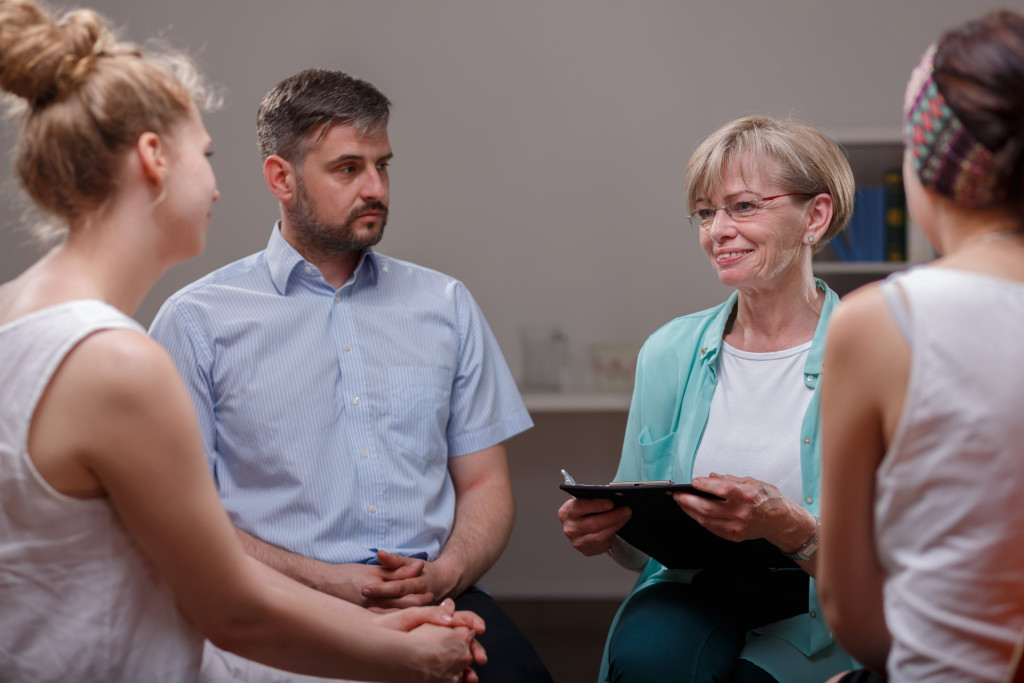Addiction is a complex topic to talk about. It’s even harder to deal with when it’s someone you love who is struggling. If you’re reading this, chances are you know exactly what that feels like.
You may be feeling lost, scared, and helpless. But the good news is that you are not alone. Millions of people like you have been in your shoes and have come out the other side. Studies even show that nearly one in three people know someone who is battling opioid addiction.
So take a deep breath and know that help is available.
Here are the first steps you need to take when helping a loved one fight addiction.
Educate Yourself About Addiction
Educating yourself about the disease is always the first step when helping a loved one with an addiction. Remember that addiction is a chronic disease, which means it’s something your loved one needs to manage over the long term. The best way for anyone to win against addiction is with your help and that of professionals.
Your support and the influence of those around them are crucial in their journey to recovery. By educating yourself, you can be more supportive and better equipped to help them through this difficult time. You will find it easier to talk to them about their addiction and be more understanding when they relapse.
There are many resources available to help you learn more about addiction. The following are examples of websites where you can get reliable information regarding addiction:
- The National Institute on Drug Abuse website
- The American Society of Addiction Medicine website
- The Substance Abuse and Mental Health Services Administration website
Start by visiting these websites and doing some research. You can also talk to your loved one’s doctor or a mental health professional if you have questions.
Talk to Them About Their Addiction
The next step is to talk to your loved one about their addiction. This can be a difficult conversation, but it’s crucial to have. It’s also essential to approach the conversation from a place of love and concern, not judgment.
Keep in mind that your loved one is not responsible for their addiction. Chances are, they didn’t choose addiction and are not weak or morally flawed because of their disease. Your goal in this conversation is to express your concern and offer your support.
You can say, “I’ve noticed that you’ve been using more alcohol/drugs lately, and I’m worried about you. I want to help you get the treatment you need.”
If your loved one is reluctant to talk, ask specific questions like “How often do you use?” or “What effects has this had on your life?”. These questions will make them feel comfortable and help open up the conversation.
Help Them Find Treatment
Helping your loved one find treatment may seem daunting, but this is critical for recovery. You can start by researching different treatment options and finding a facility that meets their needs. While many addiction treatment centers exist, not all provide the same level of care.
You’ll want to find a facility that offers evidence-based treatments, such as cognitive-behavioral therapy and medication-assisted treatment. You should also make sure that the facility has the right accreditations.
For instance, if your loved one has an opioid addiction, choose a local facility with professionals specializing in opioid dependence treatment. This will increase the chances of success and reduce the risk of relapse. Find an accredited institution that offers customized addiction treatment solutions that consider every patient’s unique situation. This way, your loved one will have the best chance of recovery.
Once you’ve chosen a facility, you can help your loved one make the necessary arrangements to get started with treatment. This may include making travel arrangements.
Be There for Them During Treatment
Your role does not end after helping them find the right center where they can start their recovery. Being there for them both physically and emotionally is key to their success in treatment. This includes attending family therapy sessions, visiting them during treatment, and providing moral support.

Visiting your loved one during treatment will give them a much-needed sense of connection to the outside world. It will also allow you to see their progress and offer support. When you can’t be there in person, try to stay in touch. You can do this by sending letters, emails, or even making video calls.
Since addiction is a family affair, make time to be there for family therapy. This will help you learn more about addiction, how it affects the entire family, and work through any issues you may have. It will also allow you to bond with other family members going through the same thing.
Help Them With Aftercare
Know that recovery is a lifelong process. Just because your loved one finished treatment does not necessarily mean the battle is over.
According to studies, 91% of opiate addicts would relapse within one year of recovery. This means that even after your loved one managed to stay sober for months, they still have a high chance of returning to their old ways. This is why aftercare is critical to their recovery.
Aftercare helps patients transition back to everyday life and prevents them from relapsing. It can take many forms, such as 12-step meetings, therapy, and sober living houses.
It pays to help your loved one choose the right aftercare program. This will give your loved one the necessary support to stay sober in the long run.
You can start by researching different aftercare options and finding one that meets their needs. Ensure that a reputable organization accredits the program to increase your loved one’s chances of recovery success.
Addictions can ruin lives—but there is always hope for those willing to get help. If you know someone struggling with addiction, consider these as your first steps in helping them achieve a successful recovery.

